The Basics
For day traders, tax season presents a maze of complex rules and regulations. Unlike traditional employees who receive W-2 forms, day traders must grapple with various forms and guidelines when filing their federal income tax. Here’s a simplified guide to help you understand the essentials of tax filing as a day trader.
1. Understanding Your Income: As a day trader, your income doesn’t come from a steady paycheck. Instead, it comes from buying and selling securities, such as stocks, options, or cryptocurrencies. This income is categorized as capital gains or losses, which are reported on Schedule D of Form 1040.
2. Differentiating Between Short-term and Long-term Gains: The duration for which you hold an asset before selling it determines its classification as a short-term or long-term gain. When assets are held for one year or less before selling, they are considered short-term gains, which are taxed at ordinary income tax rates depending on your tax bracket. However, long-term gains are from assets held for more than one year and are taxed at lower rates, typically 0%, 15%, or 20%, depending on your income level.
3. Keeping Accurate Records: When reporting your taxes, keeping detailed records of your trades is crucial. You’ll need to maintain records of each trade, including the date of purchase and sale, the cost basis, the sale proceeds, and any expenses incurred during trading, such as commissions or platform fees.
4. Reporting Capital Gains and Losses: When filing your taxes, you’ll report your capital gains and losses on Schedule D of Form 1040. You’ll need to calculate the net gain or loss by subtracting your total losses from your total gains. If you have a net loss, you can deduct up to $3,000 ($1,500 if married filing separately) against your other income. Any remaining losses can be carried forward to future years.
5. Understanding Wash Sale Rules: The IRS has specific rules regarding wash sales, which occur when you sell a security at a loss and then repurchase the same or substantially identical security within 30 days before or after the sale. In such cases, the loss may be disallowed for tax purposes. For the filer, it’s essential to be aware of these rules to avoid unintended tax consequences.
6. Paying Estimated Taxes: Since day traders don’t have taxes withheld from their income throughout the year, they’re generally required to make quarterly estimated tax payments to the IRS. Failure to pay estimated taxes on time may result in penalties and interest charges.
7. Seeking Professional Guidance: Given the complexities involved in day trading taxes, seeking the guidance of a tax professional or accountant with experience in investment taxation can provide invaluable assistance. They can help ensure compliance with tax laws, maximize deductions, and optimize your tax situation.

Tracking Your Expenses
As in other forms of self-employment income, tracking expenses is a critical aspect of day trading tax preparation. For the taxpayer, it assists in accurate calculation of net gains or losses and maximization of deductible expenses. Here’s a more detailed overview of expenses that day traders should track:
1. Trading Fees and Commissions: Often, day traders incur fees and commissions charged by brokerage firms or trading platforms for executing trades. These fees can vary widely depending on the brokerage and the volume of trades. It’s essential to keep records of all fees paid, as they are deductible as a business expense.
2. Data and Market Access Fees: Many day traders subscribe to real-time market data feeds or pay for access to advanced trading platforms with analytical tools and features. These expenses are typically deductible as they are necessary for conducting trades and analyzing market movements.
3. Software and Technology Costs: Day traders may invest in specialized trading software, algorithmic trading tools, or other technology to enhance their trading capabilities. The costs associated with purchasing and maintaining these tools can be deductible as business expenses.
4. Education and Training Expenses: Continuous learning is essential for day traders to stay updated on market trends, strategies, and techniques. Expenses related to attending trading seminars, purchasing educational materials, or subscribing to trading newsletters or courses can be deductible.
5. Home Office Expenses: If you conduct your day trading activities from a dedicated home office, you may be eligible to deduct a portion of your home-related expenses. Expenses can include rent or mortgage interest, utilities, insurance, and maintenance. However, keep in mind that home office deduction is based on the percentage of your home used exclusively for business purposes.
6. Internet and Phone Expenses: Day trading relies heavily on internet connectivity and communication. Accordingly, expenses related to internet service, mobile data plans, and phone bills can be deductible. When reporting your taxes, be sure to record these expenses based on their business usage.
7. Professional Services: If you hire tax professionals, accountants, or legal advisors to assist with tax planning, preparation, or compliance related to your day trading activities, their fees are generally deductible as business expenses.
8. Travel and Transportation: If you travel for trading-related purposes, such as attending conferences, meetings with brokers, or visiting trading floors, you can deduct expenses such as airfare, lodging, meals, and transportation.
9. Subscriptions and Publications: Costs associated with subscriptions to financial publications, market analysis services, or research reports can be deductible as they contribute to your trading knowledge and decision-making process.
10. Miscellaneous Expenses: Other miscellaneous expenses directly related to your day trading activities may also be deductible. Depending on your case, these can include office supplies, computer equipment, or professional memberships.
It’s crucial to maintain detailed records of all expenses incurred throughout the tax year, including receipts, invoices, and bank statements. Using accounting software or spreadsheets can help organize and categorize expenses efficiently. By diligently tracking expenses, day traders can minimize their taxable income and ensure compliance with IRS regulations. Additionally, consulting with a tax professional can provide personalized guidance on maximizing deductions and optimizing tax outcomes.
For many, navigating federal income tax as a day trader seems daunting. However, understanding the basics and maintaining accurate records can streamline the process. By staying informed, keeping meticulous records, and seeking professional assistance when needed, day traders can fulfill their tax obligations efficiently and effectively.

